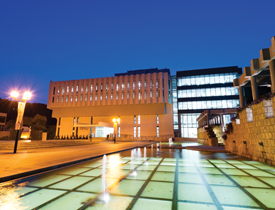
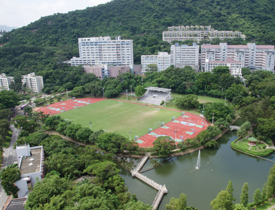
2003 - 2012
The year 2003 rightfully went down in the University's annals as one of the most difficult yet glorious years. Between late 2002 and summer 2003, an outbreak of Severe Acute Respiratory Syndrome (SARS) in South China and Hong Kong almost reached pandemic levels. The University's frontline medical professionals responded with honour and courage in the selfless fight against this hitherto unknown and treacherous disease. The battle was soon won by the hard work, foresight and inherent optimism of the University community. Alongside efforts at recuperation, CUHK spent the middle years of the decade formulating its long-term vision for growth. This encompassed provisions for the building of new Colleges and other academic facilities for the reversion to a four-year normative curriculum in September 2012.
With the retirement of Professor Ambrose King, Professor Lawrence J. Lau was appointed Vice- Chancellor of the University in 2004, heralding a series of strategic planning, focused research investment schemes and institutional development initiatives for subsequent years. Though the Chinese University had always prided itself on its bilingual heritage, it was during this time that this translated into new directions for student recruitment and academic exchange. Positioning itself as a university of international character, the University redoubled its efforts at recruiting students from out of Hong Kong including reaching deep into the vast talent pool on the mainland.
In 2005, the School of Law became the latest addition to Hong Kong's legal education landscape. It was renamed the Faculty of Law in 2008, in recognition of its expanded stature. The Faculty emphasizes independent research and helps students to develop a broad perspective through exposure to different traditions of law in Hong Kong, China, the Asia-Pacific region, and the world.
The University began establishing new Colleges from 2006 in preparation to house the additional cohort of 3,000 undergraduate students in 2012. The new Colleges that would join the University's unique collegiate family were Morningside College, S.H. Ho College, C.W. Chu College, Wu Yee Sun College, and Lee Woo Sing College. Fully residential, these Colleges uphold and upgrade the well-cherished tradition of CUHK's whole-person education through closer student–teacher interactions and various service and experiential learning opportunities.
In 2008, CUHK completed the first ever quality audit conducted by the Quality Assurance Council (QAC) of the University Grants Committee (UGC). It received from QAC 11 commendations and eight affirmations of, among other things, its high quality student learning experience, the level of academic support and pastoral care and related quality assurance mechanism. The professionalism and dedication of our teaching force were given further recognition by the bestowal of the UGC Award for Teaching Excellence on CUHK teachers for two consecutive years since the scheme's inauguration in 2011.
In the last decade members of the University continued to render assistance to victims of natural disaster around the world. For example, after the May 2008 earthquake in Sichuan that took tens of thousands of lives, CUHK lost no time in mobilizing its financial and human capital to support to support relief work. In addition to donations, our staff drew upon their expertise to provide medical and counseling services to those in need. Some of these relief efforts continue to this day. The University community's response to the earthquake and tsunami that devastated the northeastern part of Japan in March 2011 was equally swift and effective.
In October 2009, Professor Charles K. Kao, a former Vice-Chancellor of CUHK, was awarded the Nobel Prize in Physics, a spectacular testimony to Professor Kao's epoch-making discovery of optical fibre, which has revolutionized how telecommunications technology developed and the way human beings connect with one another. Professor and Mrs. Kao later personally bestowed the Nobel medal to the University. In the same year, the School of Architecture and the School of Biomedical Sciences were established.
In 2010, with the retirement of Professor Lawrence J. Lau, Professor Joseph J. Y. Sung became the seventh incumbent of the top post of the University, leading the University towards a new era of educational and academic endeavours.
The year 2011 marked a new chapter in Hong Kong's hotel and tourism management education with the grand opening of the teaching hotel of the Chinese University. The ambitious teaching hotel project comprises the capabilities of Hyatt Regency Hong Kong, Sha Tin, and the Cheng Yu Tung Building. Together they provide state-of-the-art internship, teaching and research facilities for the School of Hotel and Tourism Management and the Faculty of Business Administration.
The University launched the I • CARE Programme in 2012 as an umbrella facility to coordinate and support the efforts of CUHK members in rendering services to the needy both locally and elsewhere in the world. By offering direct services or partnering with social enterprises to do so, the programme aims at nurturing social consciousness and a service culture among staff and students.
In September, 2012, Hong Kong's education system completed its sea-change when all the universities adopted a four-year undergraduate programme. For CUHK it was more than just a reversion to the time-honoured tradition that had been in place from its inception till 1994. The enriched curriculum emphasizes the fostering of a humanistic outlook and value as well as developing core competencies in a fast-changing world. On the physical side, the campus landscape had been modified with a careful balancing of utilitarian and environmental considerations. The new buildings and facilities erected for the enlarged student population were completed as planned and in time for the inauguration of the new era of university education.
A decade ago, as the University plunged into combat with SARS, its 40th anniversary activities were put on hold, resuming only in late 2003 after the epidemic had subsided and recuperation had begun. In retrospect it can be safely said that the Chinese University had emerged from the trial and tribulation wiser, healthier and more brilliant than ever. It is, therefore, appropriate that such a decade closes with a colour that denotes triumph, success and achievement, paving the way to a full year of celebratory events and happenings in 2013 through which members of the University reunite and rejoice.








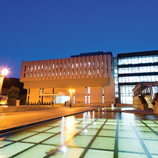
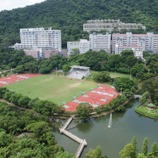
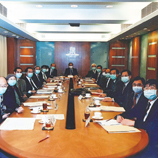
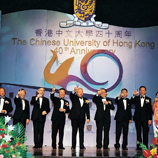
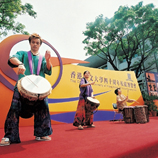
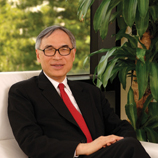
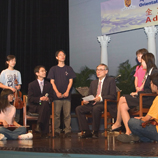
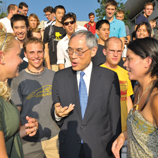
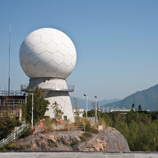
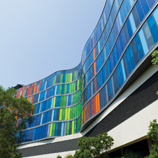
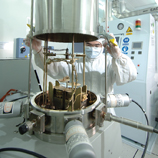
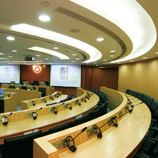
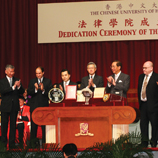
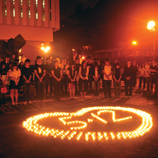
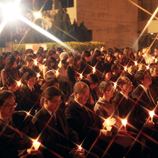
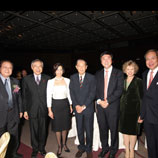
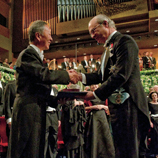
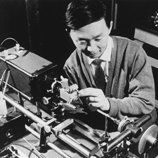
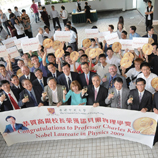
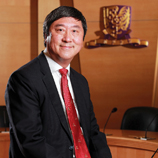
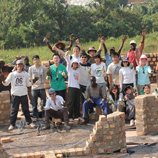
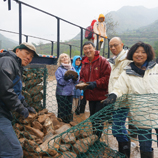
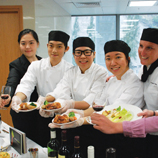
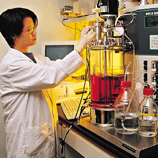
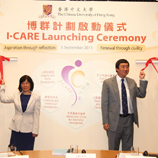
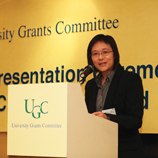
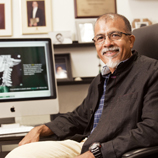
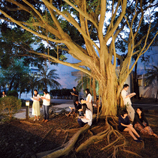
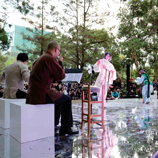
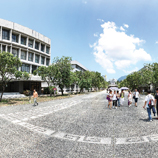
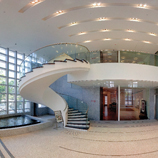
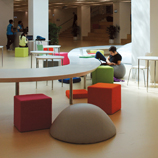

CUHK Research | CUHK: Focus at 50 | The Call of CUHK Colleges
CUHK Home | ISO Home | Contact Us | Disclaimer | Privacy Policy
Copyright © 2024. All Rights Reserved. The Chinese University of Hong Kong.